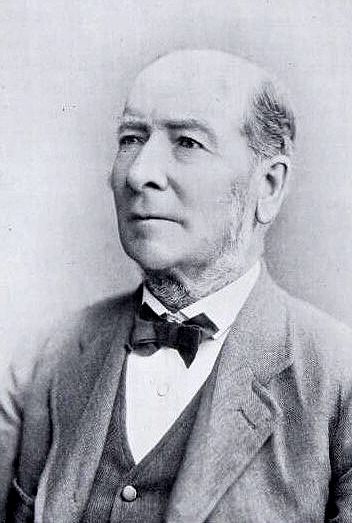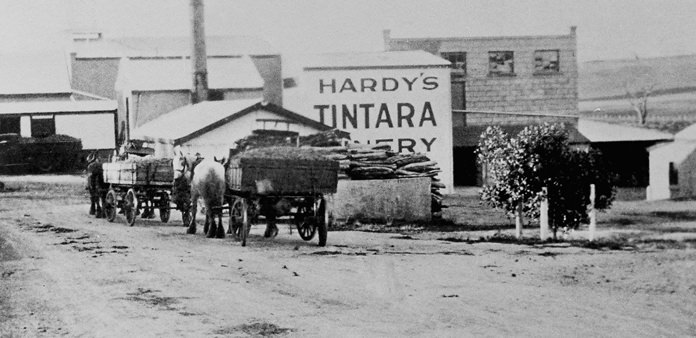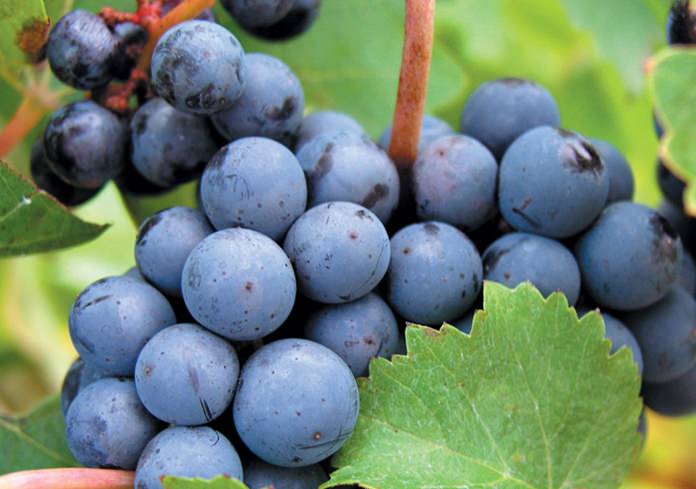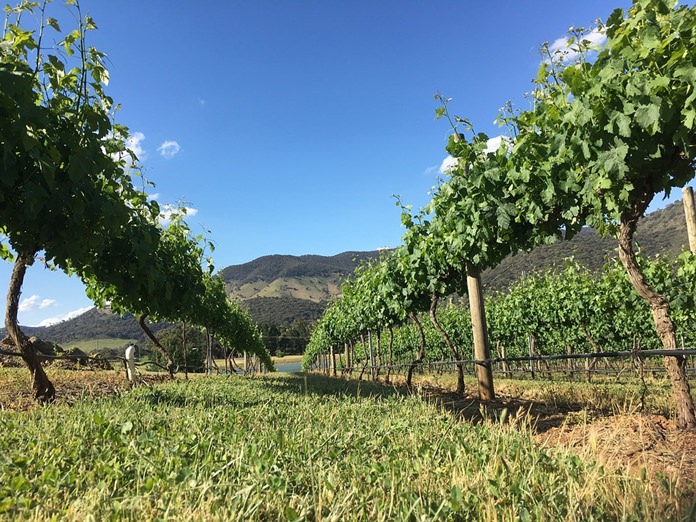
In January 1830, Thomas Hardy was born in the village of Gittisham in Devon. It’s a county in the West of England with lonely moorlands inhabited by wild ponies, narrow country roads and historic coastal towns which were once popular havens for smugglers. This part of England is known to all British people as “The West Country”. You can usually spot a West Country person the moment they speak, thanks to their distinctive dialect. It can be traced back to ancient West-Saxon dialects, which gradually developed into Old English during the Middle Ages. Thomas Hardy almost certainly spoke with the characteristic burred West Country accent. And when he travelled to South Australia at the age of twenty, he took it with him.

In those days, the journey from Britain to South Australia took a staggering twelve weeks. It was not a decision to be taken lightly, unless of course you were sent there as punishment for some petty crime. Between the years 1788 and 1868, about 162,000 British convicts were transported to Australian penal colonies by the British government to reduce pressure on crowded prisons at home.
Thomas Hardy arrived in South Australia in August 1850 and three years later planted his first Shiraz vines. Eventually he founded The Hardy Wine Company in Adelaide and it soon became South Australia’s largest winemaker. Hardys (without an apostrophe, for some reason) has grown into a massive organisation. It’s now part of Constellation Wines, the largest wine company in the world. Hardys produce a wide range of wines including a range of varietals which are crafted for consistency. This means that each varietal will taste pretty much the same year after year.
These two VR wines (it means Varietal Range) have been around for ages and widely available in this country. Interestingly, the price hasn’t changed much in several years despite the increases in tax and duty. Wine-Now Asia offers a splendid selection of wine and other beverages. You can browse their website, order online and pay by Visa or PayPal and they’ll arrange delivery anywhere in Thailand.
Hardys VR Sauvignon Blanc (white), Australia (Bt. 569.00 @ Wine-Now.Asia)
This is an agreeable pale straw with hints of green and there’s a floral, honeyed aroma of gooseberries and ripe pears. In the background, you might pick up the attractive and delicate smells of dill, a touch of white pepper and a fresh grassiness. At first sniff, it could almost be Chardonnay, but the taste leaves no doubt that it’s Sauvignon Blanc with an Australian accent. The wine makers have taken the wild and elemental Sauvignon Blanc grape and tamed the wine into an off-dry, soft-textured drink with only the slightest touch of acidity. It’s very clean and refreshing with a long, pleasing finish. It reminded me of the musical “My Fair Lady” in which you may recall that Eliza Doolittle, a simple flower-girl with a coarse East-London accent, received elocution lessons from Professor Henry Higgins so that she could speak like a lady of high social standing.

I know some wine purists would disapprove of taming Sauvignon, but this isn’t a wine for purists. It’s intended as a light easy-drinker for those who want a reliable but uncomplicated dryish white. It’s just 12% alcohol content and being off-dry would make an excellent partner for many Thai dishes or chicken and fish. It goes well with alpine cheeses too, like Emmenthal and Gruyère.
Hardys VR Cabernet Sauvignon (red), Australia (Bt. 569.00 @ Wine-Now.Asia)
If you like your Cabernet packed with fruit, you’ll certainly appreciate this little number. It’s a rich, dark red medium-bodied wine with a strong and slightly jammy aroma of dark berries, blackberry, and a faint hint of plums and spices. You might pick up the “heat” of the alcohol on the aroma too, for this wine comes at 14% alcohol content. On the palate, there are plenty of blackberries and rich dark cherry fruit but soft tannins, so soft that you might not notice them at all. The wine has a pleasant long, dry and fruity finish and you might even pick up a reminder of oaky vanilla. Although it’s a dryish wine, the plentiful fruit gives a slight impression of sweetness.
I’d guess it would work well with fairly full-flavoured dishes and it would make a good partner to rich beef or lamb dishes, casseroles or the bright colours of Mexican cuisine. Now, I have to admit that I prefer a little less fruit and a bit more tannin, but this is a matter of personal preference. I am sure that this big, confident Australian wine will win many friends. It’s uncomplicated, cheerful and easy to drink and a wine that’s obviously made to please.

 |
 |





